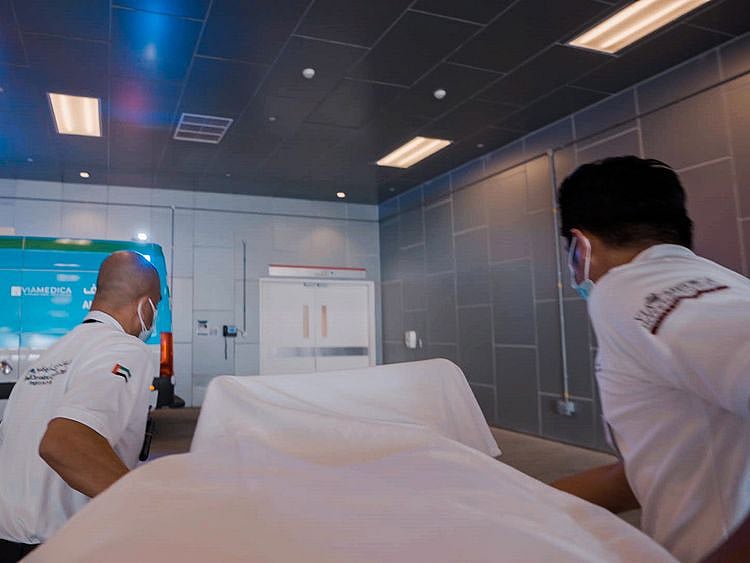UAE hospital simultaneously saves two heart attack patients
Patients had arrived within a minute of each other at Cleveland Clinic Abu Dhabi

Also In This Package
Abu Dhabi: An Abu Dhabi hospital was recently able to save two patients with severe heart attacks within a minute of each other.
The heart attack response of Cleveland Clinic Abu Dhabi — a designated chest pain centre in the emirate — was put to the test at the time, but having received prior warning of the patients’ arrival, medical professionals were able to deliver lifesaving care to both. In addition, the door-to-balloon time, which is the measure of time that passes between a heart attack patient arriving at a hospital and the restoration of blood flow to his heart along with removal of blockages, was maintained from 61 to 46 minutes for both patients. The American College of Cardiology sets the door-to-balloon time target at 90 minutes, whereas CCAD was able to maintain a 53-minute average in 2020.
Also Read
Girl, 16, found to be pregnant in Sharjah, foetus dumped in garbageUAE: Meet Ayesha Khan, expatriate Indian woman selling a meal for just Dh3Every minute precious
Dr Mahmoud Traina, an interventional cardiologist at the hospital, said: “When it comes to heart attacks, for every minute that goes by without medical treatment, the chances of a good outcome for the patient decrease. An hour’s delay is associated with an eight per cent increase in mortality. My message to the community is take chest pain seriously — don’t wait to see if it passes but get to a designated chest pain centre as quickly as possible.”
CCAD itself ensures that a specialised team is on standby to provide emergency care to heart attack patients around the clock.
Dr Lars Svensson, chairman of the Sydell and Arnold Miller Family Heart, Vascular and Thoracic Institute at the Cleveland Clinic, said: “Research conducted at Cleveland Clinic [in the US] shows that fast and effective care based on proven best practices can reduce in-hospital mortality. I am heartened to see what my colleagues in Abu Dhabi have achieved for their community.”
Seek immediate care
Ahead of World Heart Day on September 29, doctors at CCAD are also urging residents experiencing chest pain to seek immediate medical attention for chest pain. Recent data suggests that only 15 per cent of severe heart attack cases arriving at the hospital come in an ambulance, significantly below the percentage in the United States. In contrast, the vast majority of patients in Abu Dhabi arrive at the emergency department after being driven by a friend or family member.
“Not all emergency departments have the same ability to provide rapid, high quality care in heart attack cases, particularly at night or over the weekend. This means that patients who don’t go to a designated chest pain centre directly can experience unnecessary delays in their treatment. Calling an ambulance means paramedics can begin diagnostics and call ahead to let us know a heart attack case is coming. That means we’re ready to begin treatment as soon as they arrive, saving precious minutes for treatment,” Dr Traina said.
Youth vigilance
As part of a comprehensive heart health campaign, the CCAD is also sharing practical information on cardiovascular disease, its risk factors and available treatment options. The hospital earlier announced that nearly half of all patients presenting to it with a major heart attack had been aged less than 50 years, with doctors saying that young residents are complacent about heart disease.
Cardiovascular disease burden
Cardiovascular disease is known to contribute to 40 per cent of all deaths in the UAE, and its high incidence stems from the prevalence of risk factors like abdominal obesity, diabetes, smoking, hypertension, and high cholesterol. In addition, symptoms for cardiovascular disease are known to present at least a decade earlier in patients in the UAE.
Sign up for the Daily Briefing
Get the latest news and updates straight to your inbox
Network Links
GN StoreDownload our app
© Al Nisr Publishing LLC 2026. All rights reserved.